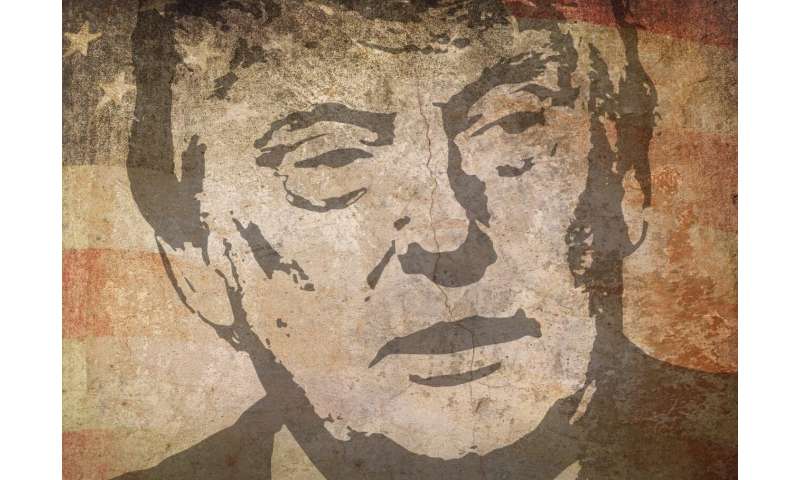
US President Donald Trump on Tuesday called for a unified national response to the coronavirus threat, after coming under fire for downplaying the pandemic and allowing states to go their own way.
Trump’s call came as Treasury Secretary Steven Mnuchin said the White House was presenting a massive economic stimulus plan to Congress and was looking at sending direct payments to all Americans, as well as aid to embattled airlines.
In a White House appearance that was striking for its mostly measured and sober tone, Trump praised the Democratic governors of New York and California and excoriated states that were not adhering to strict new guidelines on social distancing.
“We are looking to save the maximum number of lives. Everything else is going to come back, but a life is not going to come back,” Trump said.
The number of US cases has surged to more than 5,600 with 94 deaths, according to a tracker maintained by Johns Hopkins University.
Those figures seemed to be driving a sense of urgency as schools close their doors, businesses shift to teleworking and hospitals prepare to meet a wave of expected patients.
Trump has been repeatedly accused of underplaying the pandemic, particularly in its early stages, in order to avoid spooking the markets.
But he no longer appeared to be using that playbook and hailed a markedly improved feeling of bipartisanship.
“It’s been a great thing to see…getting along with Democrats, getting along with Republicans,” said Trump.
“There’s been a lot of spirit with things happening that I haven’t seen in almost three and a half years.”
Most cases in New York
The US Centers for Disease Control and Prevention (CDC) on Monday issued new guidelines to be followed for up to two weeks, advising against gatherings of more than 10 people and urging against visiting public spaces like restaurants or gyms.
That led to criticism of public officials who had just days earlier called for people to go about their daily lives—including Oklahoma Governor Kevin Stitt and Californian congressman Devin Nunes, both Republicans.
Democratic presidential primaries nevertheless went ahead Tuesday in three states—Florida, Illinois and Arizona.
A top coronavirus task force official, Deborah Birx, said: “We believe that every mayor and every governor should implement these guidelines that came from the White House and the President of the United States.”
Trump then chimed in: “And we’ve been very tough on those states, I know exactly who you’re talking about, we’ve been very tough on them,” without naming names.
And he praised Governor Andrew Cuomo of New York and Gavin Newsom of California, saying of the former: “We’re both doing a really good job and we’re coordinating.”
The US epidemic has been centered on northwest Washington, but new figures issued overnight now give New York state the highest number of cases with almost 1,400.
Cuomo warned reporters Tuesday the epidemic may not peak for 45 days and said experts had told him the state would need to devote 55,000-110,000 hospital beds to the crisis, including tens of thousands in intensive care units.
‘Very accurate’
Trump’s administration is drawing up a massive emergency spending package while the Federal Reserve has opened the floodgates of financing to contain the growing economic damage from the coronavirus pandemic.
The president called for bipartisan support for rushing out immediate cash payments to American families.
“We don’t want people losing jobs and having no money to live,” he said.
Trump did not specify a total for the stimulus package, but The Washington Post said it could amount to $850 billion.
While Tuesday’s appearance by the president signaled a shift in rhetoric—there was one area where he remained particularly combative, doubling down on referring to the pathogen as the “Chinese virus” despite objections from Beijing.
Source: Read Full Article
